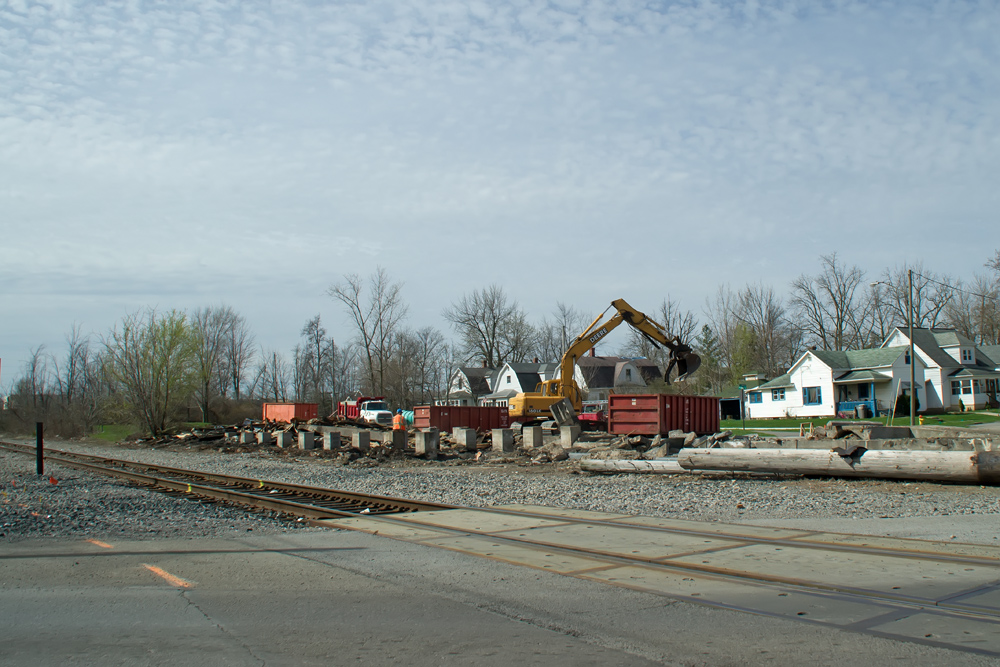
Crews clear the last debris from the depot site on Wednesday. The trackage belongs to Indiana & Ohio. Eric Davis LIMA, Ohio – Northwest Ohio has lost a piece of its railroad history this month. Crews recently razed the former Detroit, Toledo & Ironton freight depot in Lima, completing the job on April 15. The […]
Read More…

NEW BRIGHTON, Minn. – The Coalition for Sustainable Rail has launched an online repository dedicated to former Atchison, Topeka & Santa Fe Railway 4-6-4 No. 3463. The website, www.santafe3463.org, provides detail on the history of the engine, its service, and the planned overhaul of the locomotive. The nonprofit Coalition is attempting to reconstruct No. 3463 […]
Read More…
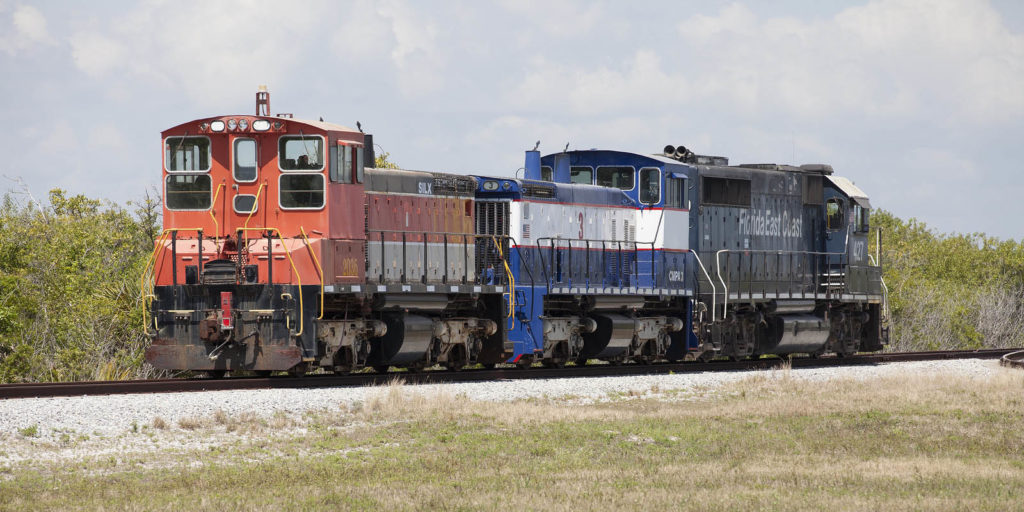
FEC GP40-2 No. 427 pulls the two NASA Railroad switchers from the property on Friday. NASA/Kim Shiflett CAPE CANAVERAL, Fla. – The locomotives that once helped NASA’s space shuttles on their journeys into space have departed the Kennedy Space Center in Florida after being sold under NASA’s Excess Program. The two EMD SW1500 locomotives, which […]
Read More…
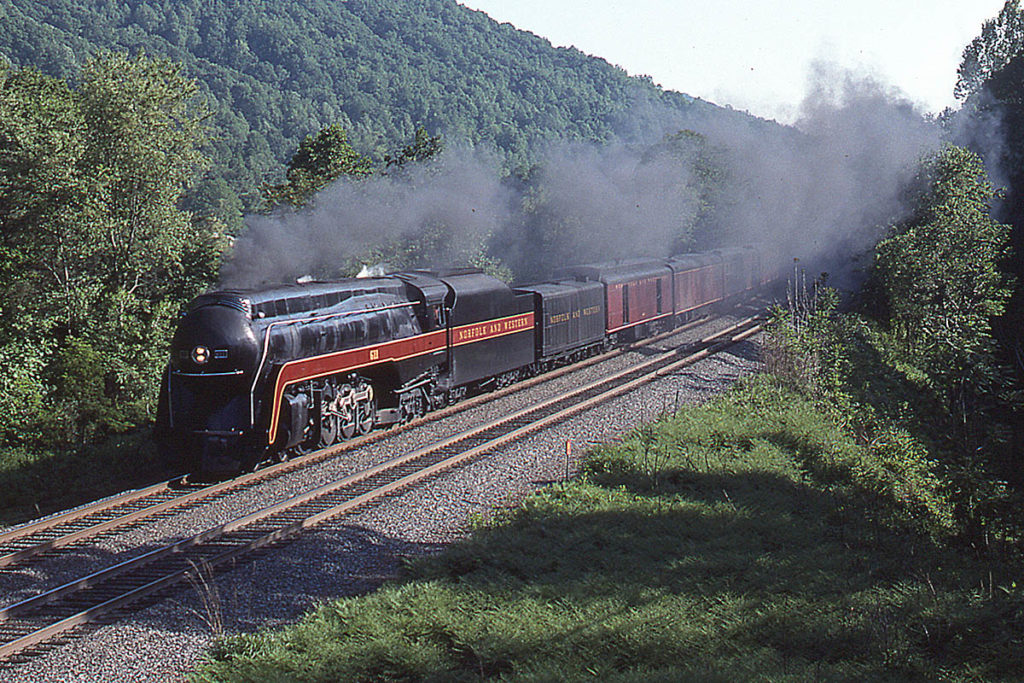
No. 611 on a 1993 excursion near Arrowhead, Va. Alex Mayes ROANOKE, Va. – Legendary Norfolk & Western Class J No. 611 will shake off 20 years of inactivity to pull its first mainline passenger train May 30 from its restoration site in Spencer, N.C., to its hometown of Roanoke where a gala celebration awaits […]
Read More…
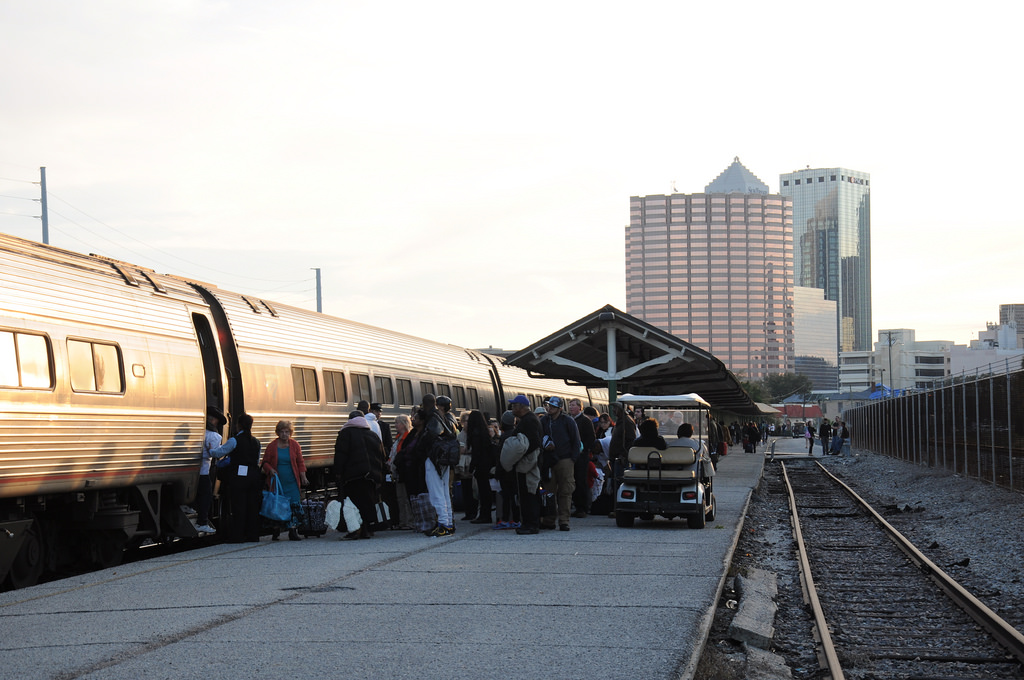
The northbound ‘Silver Star’ pauses for passengers at Tampa in January 2015. Brian Schmidt WASHINGTON – Amtrak will now sell sleeping car accommodations on its Silver Star between New York and Miami without included dining car meals. Traditionally, Amtrak has bundled the cost of dining car meals into its charge for the sleeping car. Under […]
Read More…
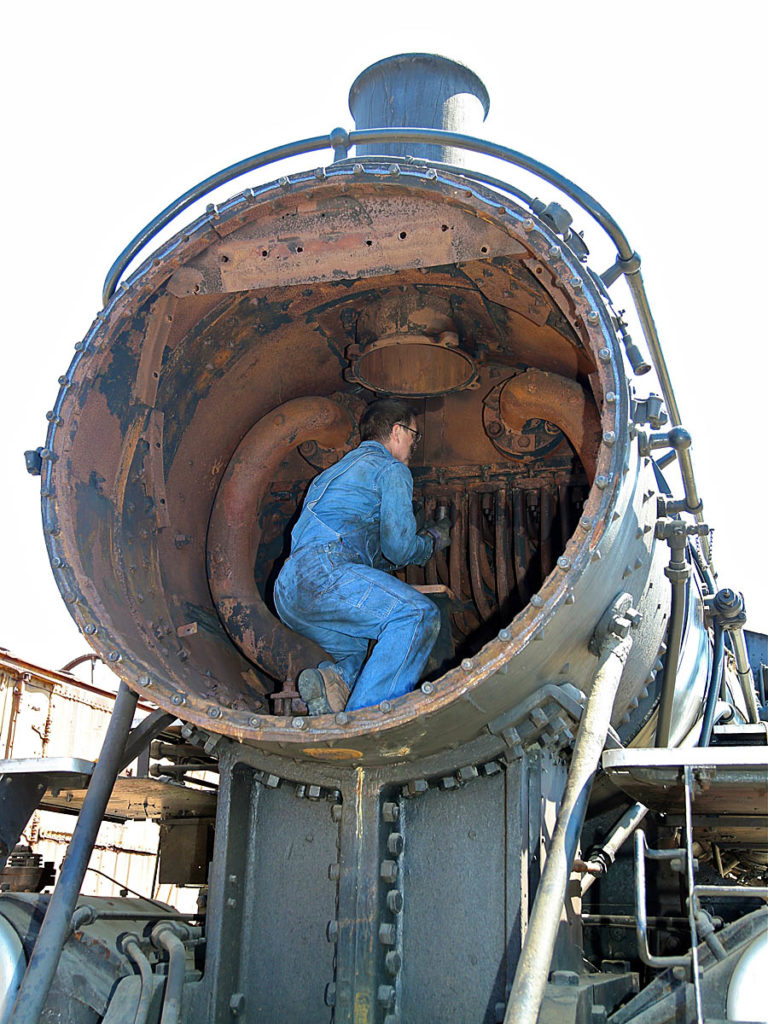
Volunteer Jimmy Zickel works inside the smokebox of No. 152. Kentucky Railway Museum NEW HAVEN, Ky. – Volunteers at the Kentucky Railway Museum have begun the initial teardown of Louisville & Nashville 4-6-2 No. 152 in preparation for its 1472-day inspection. The work, required by the Federal Railroad Administration, came due in spring 2012, necessitating […]
Read More…
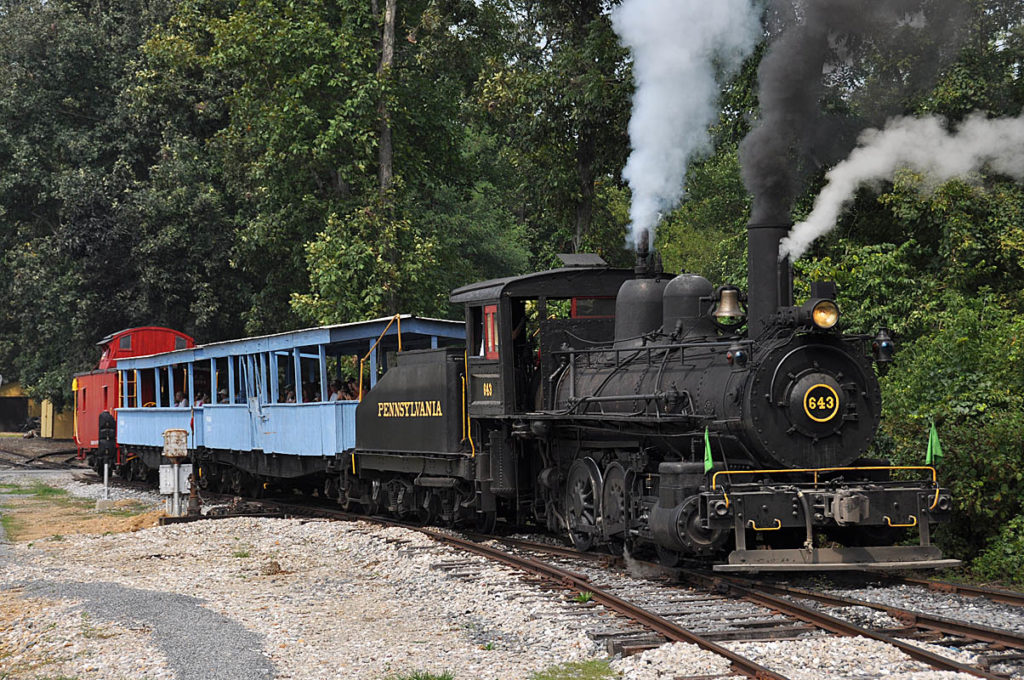
No. 643 in September 2011. Michael T. Burkhart WILLIAMS GROVE, Pa. – The Williams Grove Historical Steam Engine Association will operate its Pennsylvania Railroad 0-6-0 No. 643 during the Association’s annual steam show Aug. 30–Sept. 7. No. 643 is the only operable Pennsylvania Railroad steam locomotive. It was built by the Pennsylvania at its shops […]
Read More…
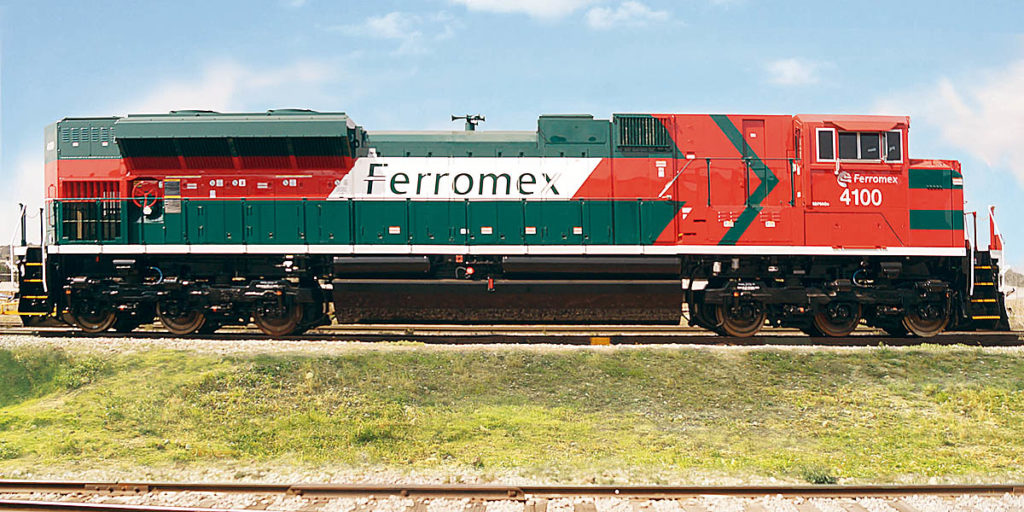
Progress Rail Services MEXICO CITY. – Electro-Motive Diesel has delivered the first 10 of 19 SD70ACe locomotives to Ferromex, adding to its fleet for a total of 116 EMD SD70ACe locomotives. The latest locomotives will be placed into service by June 2015. The locomotives feature radial trucks, distributed power capabilities, and the EMD quiet-cab design. “We […]
Read More…
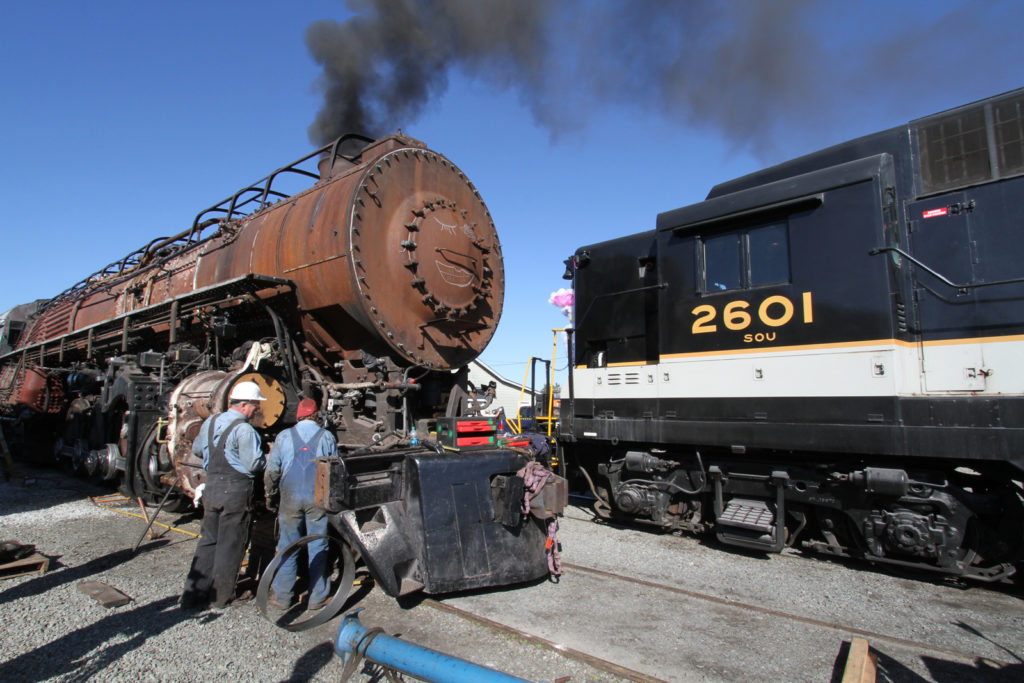
Steam crew members help with the Tuesday test while a GP30 in the Spencer museum’s collection sits nearby. Ben Earp SPENCER, N.C. – Norfolk & Western 4-8-4 No. 611 is in the home stretch of its restoration after a successful test fire Tuesday at the North Carolina Transportation Museum, where its 1,472-day inspection and repairs […]
Read More…
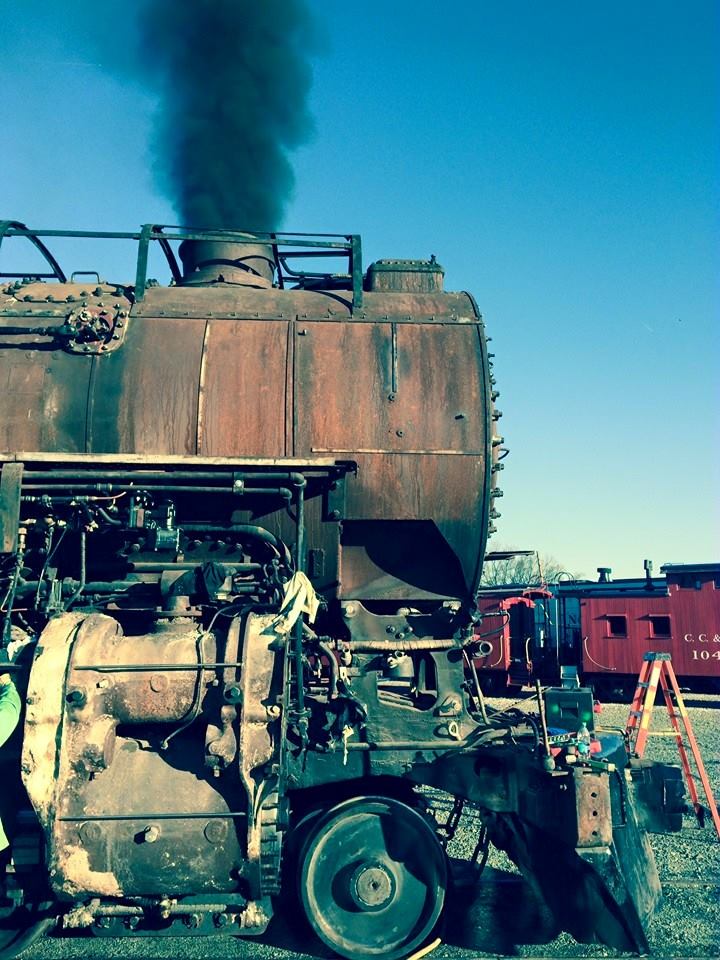
A close-up view of No. 611 during a steam test this morning. N.C. Transportation Museum N&W No. 611 without streamlined jacketing preparing to undergo a steam test at the N.C. Transportation Museum in Spencer, N.C. N.C. Transportation Museum SPENCER, N.C. — The sight of smoke rising from the stack of Norfolk & Western Class J […]
Read More…
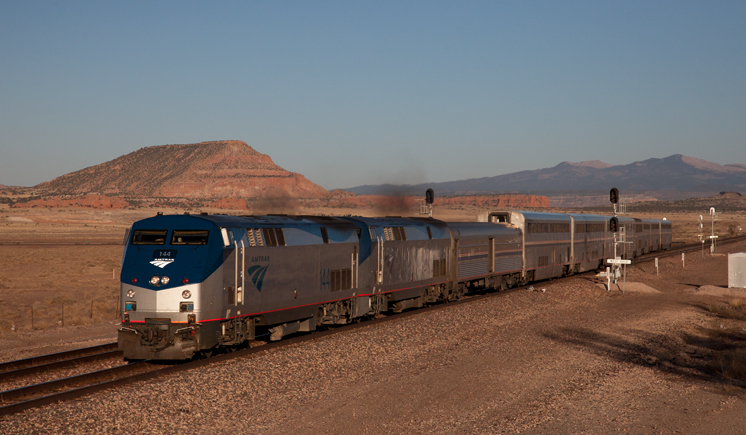
No. 144, a Dash 9-P42B, leads Amtrak’s westbound Southwest Chief on an early April evening in 2011 at Baca, N.M., over BNSF Railway tracks. Recent talks in New Mexico, Kansas, and Colorado secured funding for upkeep of the Chicago to Los Angeles passenger train’s route. Steven M. Welch ALBUQUERQUE, N.M. – Amtrak says its Southwest […]
Read More…
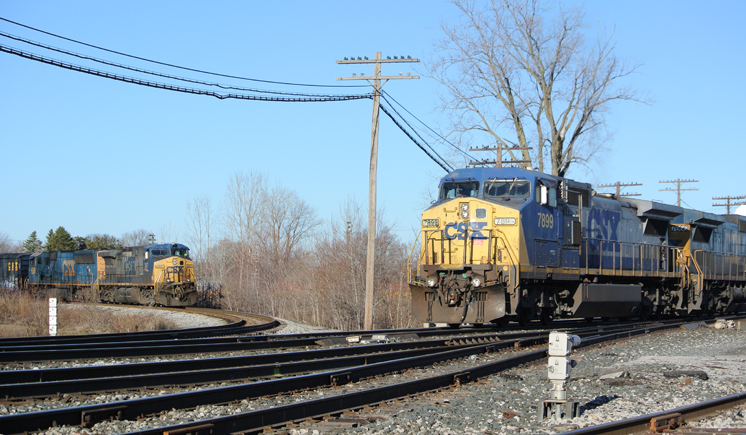
CSX Transportation train R348, left, was the last train to pass under the control of F Tower in Fostoria, Ohio. R348 departed once train S264, right, cleared the plant. Brian Schmidt Toledo, Ohio-bound train Q253 passes CSX Transportation’s F Tower in Fostoria, Ohio, just before the tower closed for good on Monday morning. Brian Schmidt […]
Read More…












